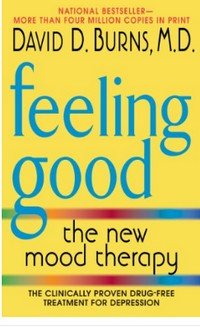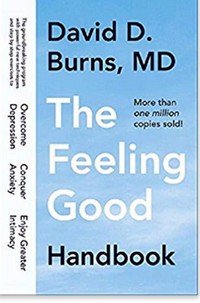Do anti-depressant medications work?
 We have been having a fascinating discussion that I reckon is best framed as “Do antidepressant medications work?” |
It would be witless to try to have a credible discussion here about the science. But we don’t need to delve too deeply into the science when the semantics of the question is so much more compelling and revealing. Starting out with the question framed in this way, there is little hope in ending up with anything more than babel.
It would be pretty silly indeed to assert globally and absolutely either that “antidepressants work” or that “anti-depressants do not work.” Silly or not, otherwise intelligent people distract the hell out of themselves and others, wasting considerable precious time and energy debating vacuous semantics such as this. REBT and General Semantics can save us a lot of time and help us to avoid “tail wagging the dog” witless exercises intrinsic to questions such as this one.
In the first place, there are many different types of anti-depressant medications, new and old, including more “alternative” ones such as St. John’s Wort. In the second place, there are many different kinds of depressions and many different varieties of clients, at different stages in life and from different backgrounds, different lifestyles and activity levels, different support networks, different resources, with differing expectations, with differing levels of commitment to overcoming their depression. Then there is the problem that everyone has a baseline mood, and some people just seem to run more sour while others run more sunny. It is unlikely that the anti-depressants in use today can do much to improve this normal baseline, and it raises interesting philosophical and ethical questions about whether it is a good idea to attempt to alter “normal” mood baselines.
Some people respond very positively and profoundly to meds, although often it will take a really competent psychopharmacologist willing to “go the distance” in trying various meds and combinations of meds until the best treatment is discovered. This process can take many months and requires a strong partnership and commitment between the pshrink and the client.
Bottom line is that sadly, anti-depressants do not have an enviable record of being safe and effective. If we believe the usually quoted figure of 60%-80% efficacy, that is nothing to write home to mother about. If you have an infection, are you satisfied with an antibiotic that has only a 60% chance of working? Still, those who do get relief or improvement, god bless you! For some anti-depressants can be a lifesaver. Sometimes taking (the right) anti-depressant during therapy can make the process more comfortable and effective. The rest of us who have not benefited from these drugs, however, had better accept reality and move on to phase two, whatever that is. Many studies have demonstrated that REBT-CBT can supersede the need to take meds in the first place.
Fondly,
Rex
Khon Kaen, Thailand
Rex@REBTinfo.com

![]()
Originally posted 2013-08-06 19:00:08.
- New REBT Info facebook group - Tue 24 Feb 26
- Beat the Holiday Bloat - Tue 24 Feb 26
- Dare to Be Average! - Mon 23 Feb 26



